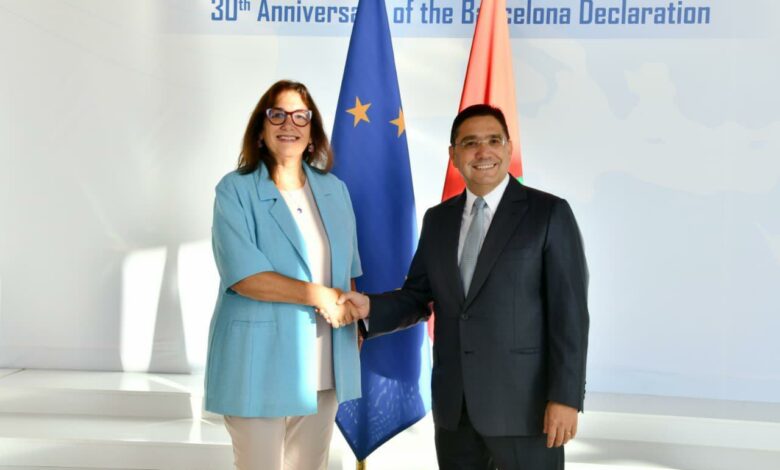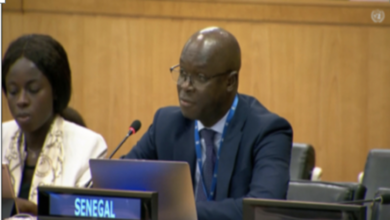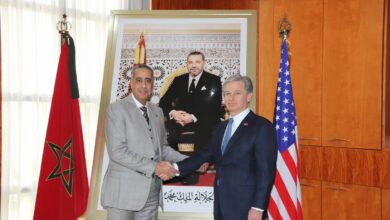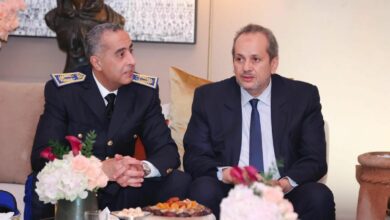Nasser Bourita: The Mediterranean is a space of belonging and stability, not merely a neighborhood
Nasser Bourita: The Mediterranean is a space of belonging and stability, not merely a neighborhood

ALDAR/ Meryem Hafiani
The Moroccan capital hosted an important conference on Thursday focusing on the future of Euro-Mediterranean relations, bringing together the Minister of Foreign Affairs, African Cooperation, and Moroccans Residing Abroad, Nasser Bourita, and the European Commissioner for the Mediterranean, Dubravka Šuica. The meeting took place as Morocco prepares to celebrate the 30th anniversary of the Barcelona Process and aims to strengthen partnership and dialogue between the two shores of the Mediterranean.
In his opening remarks, Bourita warmly welcomed the European Commissioner, expressing his satisfaction with her first bilateral visit since taking office. He described the visit as evidence of the European Union’s interest in the Mediterranean region and its desire to build a strong and balanced partnership between the North and the South. “Morocco considers the Mediterranean a space of belonging, not merely a neighborhood,” he said, highlighting the central role of King Mohammed VI in strengthening this space and developing Euro-Mediterranean relations.
The minister noted the timing of the conference is particularly significant, coming ahead of the 30th anniversary of the Barcelona Process launched in 1995, while the European Commission is preparing a new vision for Euro-Mediterranean relations. He added that Morocco possesses rich experience to share with European and Mediterranean partners, both bilaterally and multilaterally, contributing to enhanced cooperation, development, and stability in the region.
Bourita also highlighted the major challenges facing the Euro-Mediterranean space, particularly the humanitarian situation in Gaza. He stated that Israel’s actions against Palestinian civilians constitute a violation of international law and international humanitarian law, and pose a threat to regional and international stability. He emphasized that Morocco, under the leadership of King Mohammed VI, President of the Al-Quds Committee, rejects these practices and calls on the international community to act decisively to protect civilians and Palestinian rights, stressing the necessity of maintaining the two-state solution as the sole strategic option for achieving peace and stability in the Middle East.
The minister underlined that Morocco seeks balanced relations based on partnership and mutual respect, far from any donor-beneficiary logic. “Cooperation with the European Union must be based on integration and joint collaboration to address major challenges, not on imposition or directives,” he added. He emphasized that the meeting represents an opportunity for frank and informal dialogue to lay new foundations for Euro-Mediterranean relations, building on past successes and correcting less successful experiences.
For her part, European Commissioner Dubravka Šuica stated that the European Union is preparing a new framework for cooperation in the Mediterranean, focusing on three main priorities: youth and citizens, economy and development, and security and stability, including peace and migration management. She highlighted Morocco’s role as an advanced partner and a model, serving as a bridge between Europe and Africa. Cooperation with the kingdom extends across all sectors, including energy transition and green energy, as well as cultural and sports initiatives, noting Morocco’s preparations to host the 2030 World Cup in partnership with Spain and Portugal.
Regarding the Palestinian issue, Bourita reaffirmed Morocco’s rejection of any actions that threaten civilians or undermine peace prospects, emphasizing that the only strategic solution is the establishment of an independent Palestinian state based on the 1967 borders with East Jerusalem as its capital. The European Commissioner confirmed the EU’s support for the two-state solution, while highlighting Morocco as an example of a strategic partnership that can be strengthened with countries in the region.
The meeting concluded on the shared conviction that the Mediterranean must be a space for rapprochement and cooperation between peoples and states, promoting equal partnership and integration between the two shores, thereby contributing to stability, development, and shared prosperity.





